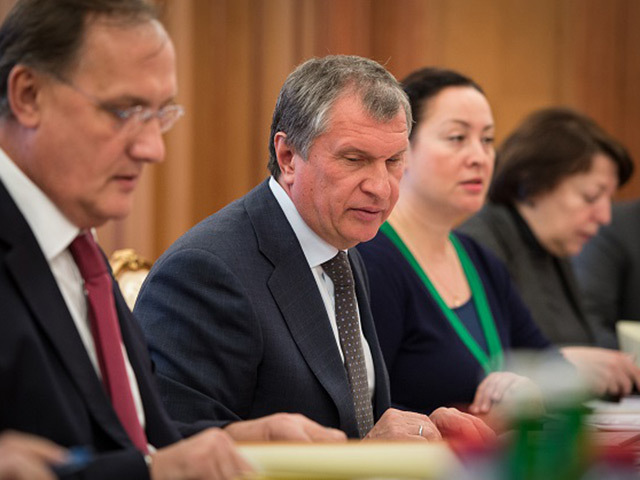
State owned Russian oil firm Rosneft has seen production growth of more than 11% in the first three months of the year.
The company, which BP has a 19.75% stake in, produced 5.79 mmboed of hydrocarbons in Q1 2017.
This represented a growth in average daily production of 11.1% year on year.
It comes on the back of Rosneft making a number of acquisitions and launching greenfield sites.
Development drilling grew by 9% and gas production increased by 2.9%.
Further growth was identified in supplies to eastern routes.
Rosneft said the main contribution to organic production growth came from the Vankor cluster (+10.1%), Yuganskneftegaz (+0.7%), Samaraneftegaz (+3.2%), Rospan (+14.8%) and the start of production at the East Messoyakhskoye field in September 2016.
The firm is continuing to develop a number of assets including the pilot development of the Yurubcheno-Tokhomsky field.
Joint drilling operations with Statoil in the Samara region are to continue for the foreseeable future.
And the company maintained leading position in gas production among independent producers in Russia.
The growth was driven by the launching of several new wells.
Other early 2017 highlights included the start up of drilling in the Khatanga subsoil area on the Laptev Sea shelf to make the northernmost well on the Russian Eastern Arctic sea shelf.
The President of Russia Vladimir Putin launched the exploration drilling via a video conference with Rosneft CEO Igor Sechin who was on the shore of the Khatanga bay.
Preliminary estimates suggest that the Laptev Sea’s total potential geological resources could come to 9.5 billion tons of oil equivalent.
The Company continues to diversify oil supplies between the western and eastern destinations: Eastward shipments in Q1 2017 grew to 11.3 mmt compared to 10.9 mmt in Q1 2016.
As part of the inter-governmental agreement between the Russian Federation and the Republic of Cuba, in March Rosneft and the authorized Cuban company Cubametales signed a contract for the supply of about 250 th. tons of oil / diesel fuel to Cuba.
In April 2017 Rosneft closed the acquisition of a 100% stake in the Kondaneft project, which is developing the Kondinsky, Zapadno-Erginsky, Chaprovsky and Novo-Endyrsky license areas in the Khanty-Mansy Autonomous District.
Rosneft say the start of production in the Kondaneft project will launch the development of one of the most promising production clusters in the Russian oil and gas industry.
In the beginning of the year, Rosneft and the Chinese National Oil and Gas Corporation (CNPC) signed an supplementary agreement to increase the supply of oil transiting through Kazakhstan and to extend the contract from 2013 to the end of 2023.
According to the agreement, supplies to this destination will reach 91 mmt during a 10-year period, which will allow further planned increases of sales to a highly marginal Asian destination.